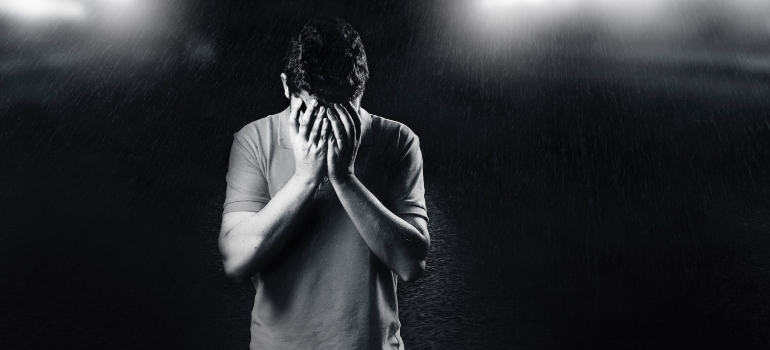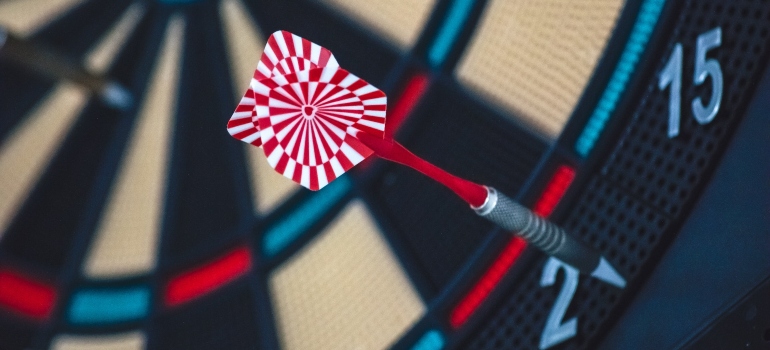Recovering from addiction is an incredibly challenging journey. It takes immense strength, determination, and perseverance to make positive changes during addiction recovery. However, despite the best intentions and efforts, many people face significant obstacles that hinder their progress and make the journey toward sobriety more difficult. By recognizing the common obstacles to making positive changes in life during addiction recovery, the journey becomes a lot smoother and likely to have a desirable outcome.
If you’re searching for drug and alcohol treatment centers in West Virginia, make sure to contact us. Here at Harmony Ridge Recovery Center, we ensure the best care for our patients, as well as relapse prevention programs. We invite you to contact us and find out why we stand out among many other rehab facilities in the country.
Lack of support poses a significant obstacle to a smooth recovery journey
Building a strong support network is crucial for addiction recovery. It can help you feel less alone, more motivated, and better equipped to face the challenges of recovery. Without a support system in place, addiction recovery can be a lonely and isolating journey, which can make it difficult to stay committed to your goals.

Friends and family
Friends and family can be excellent sources of support during addiction recovery. They can provide you with encouragement, understanding, and love. However, it’s essential to remember that not everyone in your life will be able to support you in the way you need. Some people may struggle to understand addiction or may have their own issues with substance abuse. It’s important to set boundaries with these individuals and focus on building relationships with those who can provide you with the support you need.
In addition, you might consider the family therapy that stimulants rehab centers provide. Family therapy is a type of counseling that involves the participation of family members to address the dynamics and issues within the family that may contribute to the individual’s addiction. This approach not only addresses the root causes of addiction but also promotes healing and recovery for the entire family unit. By seeking family therapy at a stimulants rehab center, individuals can work on rebuilding relationships with their loved ones
Recovery professionals
Recovery professionals, such as therapists, counselors, and addiction specialists, can also be valuable sources of support during rehab in Marietta OH. They can provide you with guidance, accountability, and resources to help you stay on track with your recovery goals. If you’re struggling to find the right support system, consider seeking help from a recovery professional who can help you develop a personalized plan for recovery.

Support groups
Support groups can also be a valuable source of support during addiction recovery. They provide a safe and supportive environment where you can connect with others who are going through similar experiences. Support groups can provide you with a sense of community, accountability, and encouragement. There are many different types of support groups available, including 12-step programs, faith-based programs, and non-religious programs. It’s important to find a support group that aligns with your beliefs and needs.
Difficulty coping with triggers
Triggers and temptations can be significant obstacles to making positive changes during addiction recovery. Triggers are situations or events that can prompt a relapse, while temptations refer to the desire to use drugs or alcohol. They can arise unexpectedly and test your resolve to stay sober. Common triggers include stress, boredom, and social situations, while temptations can be triggered by exposure to substances or peer pressure.
To overcome triggers and temptations, it’s essential to identify them first. This can involve examining past relapses and determining what circumstances led to them. It can also involve seeking the help of a therapist or counselor to assist you in identifying triggers and developing strategies to manage them.
Once you’ve identified your triggers and temptations, it’s crucial to develop strategies to avoid or manage them. For example, if social situations are a trigger, it may be helpful to avoid parties or gatherings where drugs or alcohol will be present. If this is not possible, it may be beneficial to bring a sober friend or support person with you to the event.
Mental health struggles
Mental health issues are often intertwined with addiction and can significantly hinder the recovery process. Common mental health issues that individuals with addiction may face include depression, anxiety, and post-traumatic stress disorder (PTSD). These issues can make it challenging to stay motivated, cope with triggers and cravings, and maintain healthy relationships.
Addressing mental health issues
It’s essential to address any mental health issues that you may be experiencing while working toward addiction recovery. Untreated mental health issues can lead to relapse, and individuals with addiction and mental health issues may need a more comprehensive treatment approach. Seeking help from a therapist or counselor who specializes in addiction recovery and mental health can provide you with the support and tools you need to overcome these challenges.

Working with a therapist
Make sure to find a therapist who is a good fit for you and your needs. Take the time to research and interview potential providers to ensure that they have experience working with individuals with addiction and mental health issues. If you’re about to enter intensive inpatient or outpatient care chances are you’ll receive psychiatric help as a part of rehab in point Pleasant WV or any other place in West Virginia and nearby.
Incorporating mental health treatment into addiction recovery
Addiction and mental health issues are often intertwined, and treating one without addressing the other can hinder recovery progress. Incorporating Dual Diagnosis treatment for addiction can help patients achieve long-term recovery success. This may involve medication, therapy, or a combination of both. Medication can help manage symptoms of mental health disorders, such as depression or anxiety, that may contribute to addiction. Therapy can help individuals learn coping skills, manage triggers, and address underlying issues that may contribute to addiction.
Lack of structure
Lack of structure can be a significant obstacle to positive changes during addiction recovery. Without a consistent schedule and routine, it can be challenging to stay focused, motivated, and committed to your recovery goals. A lack of structure can lead to distractions, disorganization, and a lack of accountability. In contrast, establishing a structured routine can help you stay on track and make positive changes in your life.

Distractions and disorganization
Distractions can be a significant barrier to recovery. Without structure, it’s easy to become distracted by social media, television, or other time-consuming activities that take away from your recovery efforts. A structured routine can help you prioritize your time and focus on the activities that support your recovery. On the other hand, it’s easy to become disorganized and lose track of important tasks and appointments. This can lead to missed meetings, forgotten commitments, and a lack of progress in your recovery. Establishing a structured routine can help you stay organized and focused on the activities that support your recovery.
A lack of accountability – one of the biggest obstacles to making positive changes in life
A lack of accountability can be a significant obstacle to positive changes during addiction recovery. Without structure, it can be easy to fall into old habits and behaviors. Establishing a structured routine can help you stay accountable to yourself and your recovery goals. A routine can also help you stay accountable to others, such as your therapist, support group, or sponsor.
Benefits of structured routine
A structured routine can provide numerous benefits during addiction recovery. It can help you stay focused, motivated, and committed to your recovery goals. It can also help you establish healthy habits, such as exercise, healthy eating, and regular sleep patterns. These habits can improve your physical and mental health and provide you with the energy and motivation you need to make positive changes in your life.

Aftercare treatment supports positive changes in your life and structured life after recovery
Aftercare treatment is a vital component of West Virginia heroin rehab (among other rehab programs). It is designed to help individuals maintain the positive changes they’ve made in their lives during the recovery process. Aftercare treatment provides ongoing support and guidance to help individuals navigate the challenges of a structured life after recovery:
- Continued support: Aftercare treatment is typically provided in a group setting, such as a support group or therapy group. These groups provide a safe and supportive environment where individuals can share their experiences and connect with others who are also in recovery. They offer continued support and encouragement, helping individuals stay motivated and committed to their recovery goals.
- Relapse prevention: Relapse prevention strategy is an important aspect of aftercare treatment that rehab near Morgantown WV includes. Recovery is an ongoing process, and relapse can be a common occurrence. Aftercare treatment provides individuals with the tools and strategies they need to avoid triggers, cope with stress, and prevent relapse. It also helps individuals identify warning signs and develop a plan of action to prevent relapse before it occurs.
- Structured life: Aftercare treatment also helps individuals transition into a structured life after recovery. This can include finding employment, developing healthy relationships, and rebuilding their lives. Aftercare treatment provides individuals with the guidance and resources they need to succeed in their post-recovery life.
Poorly structured rehab programs
One of the most significant challenges with poorly structured rehab programs is that they fail to address the underlying causes of addiction. Addiction is often rooted in trauma, mental health issues, or other co-occurring disorders. If these underlying issues are not adequately addressed, the individual is likely to relapse after leaving rehab. For example, if someone is struggling with depression, and their rehab program only focuses on their addiction, they may return to using drugs or alcohol as a way of self-medicating their depression.
Furthermore, they may not provide enough support and resources for individuals to maintain sobriety after leaving rehab. Recovery is a lifelong process, and individuals need ongoing support to stay on track. This can include access to counseling, support groups, and other resources to help them manage triggers and cravings. Without these resources, individuals may struggle to maintain their sobriety and may be more likely to relapse.
Poorly structured rehab programs may also fail to address the individual needs of each person in the program. Addiction is a highly personalized disease, and what works for one person may not work for another. Effective rehab programs should take a personalized approach to treatment, addressing the unique needs of each person in the program. This can include customized treatment plans like rehab for veterans and others, individual counseling, and other personalized resources to help individuals achieve long-term recovery.

Finally, poorly structured rehab programs may not provide enough follow-up care to ensure that individuals are staying on track with their recovery. After leaving rehab, individuals need ongoing support and accountability to help them stay sober. This can include regular check-ins with counselors or other professionals, ongoing participation in support groups, and other resources to help them stay on track. That being said, make sure to find the rehab center near Huntington WV that provides comprehensive rehab programs and aftercare treatments.
Final words on obstacles to making positive changes in life
Underlying mental health issues, lack of support, social stigma, and the risk of relapse might discourage anyone on the recovery journey. However, with the right support, resources, and mindset, you can overcome these common obstacles to making positive changes in life and achieving long-term recovery. Also, remember that recovery is a lifelong process, and making positive changes in life requires commitment, patience, and perseverance. By staying focused on your goals and taking things one day at a time, you can build a brighter, healthier future for yourself.



